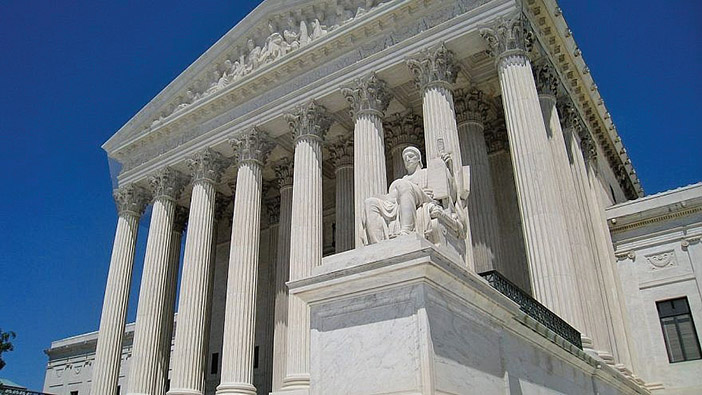
American Jewish groups expressed mixed reaction to the U.S. Supreme Court’s decision on a controversial Colorado baker’s refusal to serve a gay couple.
In a 7-2 decision on the Masterpiece Cakeshop v. Colorado Civil Rights Commission case, the Supreme Court sided with a Colorado baker, Jack Phillips, who had refused to create a custom wedding cake for a same-sex couple on religious grounds.
“The neutral and respectful consideration to which Phillips was entitled was compromised here,” Justice Anthony Kennedy wrote for the majority. “The [Colorado] Civil Rights Commission’s treatment of his case has some elements of a clear and impermissible hostility toward the sincere religious beliefs that motivated his objection.”
Nevertheless, the Supreme Court’s decision was mainly narrowly defined to this particular case. The court also strongly reaffirmed gay rights and left open the possibility that the cases raising similar issues could be decided differently.
The Religious Action Center of Reform Judaism said that it was “disappointed” by the Supreme Court’s ruling, and that it “missed opportunity to affirmatively protect the civil rights of all Americans, regardless of their sexual orientation.”
“As Jews, we believe that we are all created B’tzelem Elo-him, in the Divine Image. We are called to treat each other with dignity and respect. We can protect religious freedom claims without restricting the fundamental rights of all people to live free from discrimination in places of public accommodation, as well as in every arena where our laws offer civil-rights protections. Arguing otherwise distorts and weaponizes these essential freedoms,” Rabbi Jonah Dov Pesner, director of the Religious Action Center of Reform Judaism, said in a statement.
Jonathan Greenblatt, CEO of the Anti-Defamation League, said his group was also “disappointed” in the ruling, but that “fortunately, the decision was narrow, focusing on the Commission’s religious partiality in rendering its decision against the baker.”
“Let’s be clear: the Supreme Court decision does not give businesses the constitutional right to discriminate, and it does not change existing state anti-discrimination protections. The court reiterated the importance of the rights and dignity of LGBT individuals to be free from discrimination. And it recognized that religious exemptions to anti-discrimination laws for businesses must be limited and confined,” he said.
However, Orthodox Jewish groups expressed support for the decision.
“The Court’s ruling is gratifying in that it emphasizes that religious freedom concerns must be given a full and deserving measure of consideration, even within the context of local and state anti-discrimination law,” Agudath Israel of America said in a statement.
Nathan Diament, the Orthodox Union’s executive director for public policy, said: “Today’s ruling by the U.S. Supreme Court is incredibly important, especially coming with a 7-2 vote. Too many pundits and politicians have lately engaged in rhetoric that seeks to paint religious liberty in a negative light, especially as they seek to advance policies to which some have sincere dissent.
“Today, the United States Supreme Court sent a clear message: that the demonization of religious beliefs, especially in policymaking, is constitutionally unacceptable. We hope this will lead to more constructive and productive engagement on these important matters going forward.”








